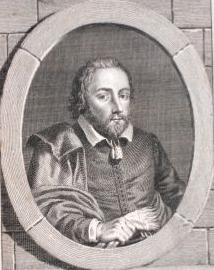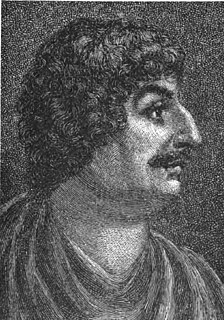A Quote by Plato
For neither does wealth bring honour to the owner, if he be a coward; of such a one the wealth belongs to another, and not to himself. Nor does beauty and strength of body, when dwelling in a base and cowardly man, appear comely, but the reverse of comely, making the possessor more conspicuous, and manifesting forth his cowardice.
Related Quotes
It is God's earth out of which man is taken. From it he has his body. His body belongs to his essential being. Man's body is not his prison, his shell his exterior, but man himself. Man does not "have" a body; he does not "have" a soul; rather he "is" body and soul. Man in the beginning is really his body. He is one. He is his body, as Christ is completely his body, as the Church is the body of Christ
It is true that so far as wealth gives time for ideal ends and exercise to ideal energies, wealth is better than poverty and ought to be chosen. But wealth does this in only a portion of the actual cases. Elsewhere the desire to gain wealth and the fear to lose it are our chief breeders of cowardice and propagators of corruption. There must be thousands of conjunctures in which a wealth-bound man must be a slave, whilst a man for whom poverty has no terrors becomes a freeman.
The sum of all that makes a just man happy
Consists in the well choosing of his wife:
And there, well to discharge it, does require
Equality of years, of birth, of fortune;
For beauty being poor, and not cried up
By birth or wealth, can truly mix with neither.
And wealth, when there's such difference in years,
And fair descent, must make the yoke uneasy.
The Landlord is a gentleman who does not earn his wealth. He has a host of agents and clerks that receive for him. He does not even take the trouble to spend his wealth. He has a host of people around him to do the actual spending. He never sees it until he comes to enjoy it. His sole function, his chief pride, is the stately consumption of wealth produced by others.
Therefore, the truly great man, although he does not injure others, does not credit himself with charity and mercy (these are natural to him). He does not seek gain, but does not despise his followers who do. He struggles not for wealth, but does not take credit for leaving it alone... The ranks and emoluments of the world are to him no cause for joy, it's punishments and shame no cause for disgrace.
Neither numbers nor powers nor wealth nor learning nor eloquence nor anything else will prevail, but purity, living the life, in one word, anubhuti, realisation. Let there be a dozen such lion-souls in each country, lions who have broken their own bonds, who have touched the Infinite, whose whole soul is gone to Brahman, who care neither for wealth nor power nor fame, and these will be enough to shake the world.
The wise man does nothing but what can be done openly and without falseness, nor does he do anything whereby he may involve himself in any wrong-doing, even where he may escape notice. For he is guilty in his own eyes before being so in the eyes of others; and the publicity of his crime does not bring him more shame than his own consciousness of it.
Yea, much more those that seem to be the more feeble members of the body, are more necessary. And such as we think to be the less honourable members of the body, about these we put more abundant honour; and those that are our uncomely parts, have more abundant comeliness. But our comely parts have no need[.
...the gross national product does not allow for the health of our children, the quality of their education or the joy of their play. It does not include the beauty of our poetry or the strength of our marriages, the intelligence of our public debate or the integrity of our public officials. It measures neither our wit nor our courage, neither our wisdom nor our learning, neither our compassion nor our devotion to our country, it measures everything in short, except that which makes life worthwhile.








































